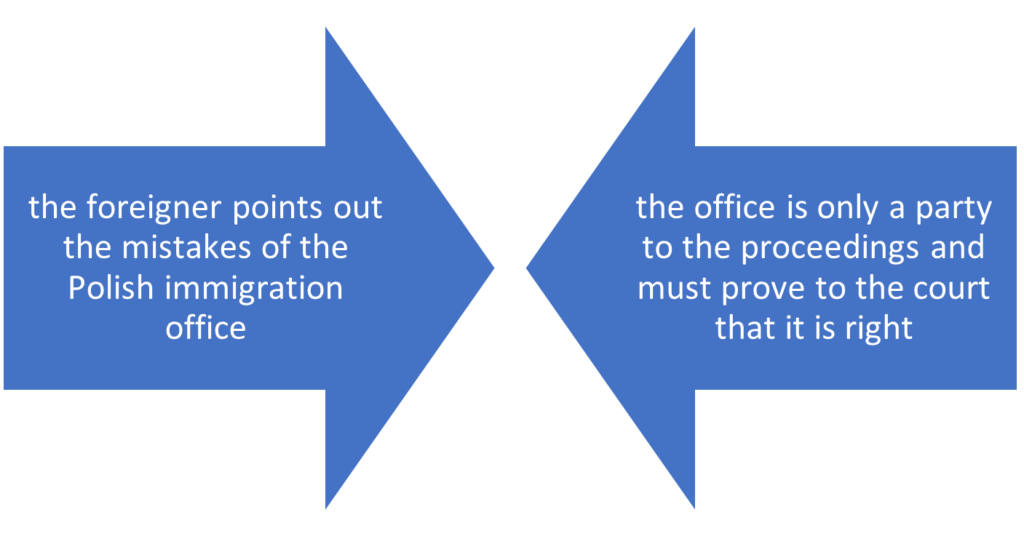
The Polish immigration reality is particularly formalized compared to some popular jurisdictions in the world. Therefore, very often the legalization of a business stay in Poland or obtaining a Polish passport consists in carrying out:


KIELTYKA GLADKOWSKI specializes in regulatory matters related to mobile globalization in Polish jurisdiction. In particular, we represent:
Our expertise includes legal support in the following immigration cases:
The permit is granted to a foreigner whose purpose of staying in the territory of the Republic of Poland will be to perform work as a managerial staff member, specialist or employee undergoing an internship at the host entity based in Poland, to which he/she is temporarily delegated by the parent employer, based outside the territory of Member States of the European Union for a period longer than 3 months.
EXCHANGE OF DOCUMENTS (FOR BENEFICIARIES OF THE WITHDRAWAL AGREEMENT WHO HAVE THE EU CITIZEN/FAMILY MEMBER DOCUMENT ISSUED BEFORE 2021);
ISSUANCE OF NEW DOCUMENTS (FOR BENEFICIARIES OF THE WITHDRAWAL AGREEMENT WHO DO NOT HAVE THE EU CITIZEN’S DOCUMENT/FAMILY MEMBER OF THE EU CITIZEN BUT HAVE BEEN IN POLAND BEFORE 2021);
The second pillar of the specialization of our firm is the issue of obtaining a Polish passport for people whose families left Poland before the war.
KIELTYKA GLADKOWSKI has a particularly extensive experience in:
For many years, KIELTYKA GLADKOWSKI has been building experience based on the most difficult evidentiary cases. The main core of the difficulties of the proceedings consists in collecting evidence of the applicant’s family’s connection with Poland. Very often, clients have a problem with objective proof of when exactly the family left Poland.
KIELTYKA GLADKOWSKI actively collects evidence for its clients in American immigration archives (documents of arrival in America from Poland) and before Polish archives and religious communities.
Two examples that show the essence of the problem and the very high degree of difficulty in obtaining evidence from very distant times:
1/ The client has an ancestor who left for America from the town of Płońsk near Warsaw, where David Ben Gurion – the creator and founder of the state of Israel – comes from; The client obtained confirmation of the family’s registration in the State Archives in Poland from the census of the town from 100 years ago;
2/ The client has an ancestor from the town of Stryj affected by the Holocaust (now Western Ukraine); The client’s ancestor left as a child with Polish citizenship in the 1930s; then he took part in the Ardennes offensive as a soldier of the American Army, receiving awards for special bravery in direct contact with the enemy (Air Medal with 3 Oaks leaves, Good Conduct Medal, American Theater Campaign Ribbon, Europe African Middle Eastern Campaign Medal).
The main legal act regulating the issue of citizenship in Poland is the Act of 2 April 2009 on Polish citizenship (consolidated text Journal of Laws of 2022, item 465, as amended).
Granting Polish citizenship
Recognition as a Polish citizen
Restoration of Polish citizenship
Loss of Polish citizenship
Confirmation of possession or loss of Polish citizenship.
The main problem of indicating the prerequisites for obtaining or losing Polish citizenship is that the Polish Act on Citizenship has been amended many times and underwent changes due to the following conditions:
1/ Poland’s transition from the communist era to the modern democratic system in 1989;
2/ Poland’s entry into the communist system after 1945 and the emergence of an independent Polish country only after 1918.
Therefore, when assessing the material grounds for assessing Polish citizenship, the following former Polish laws are taken into account:
1/ Act of February 15, 1962 on Polish citizenship;
2/ Act of January 8, 1951 on Polish citizenship;
3/ Act of January 20, 1920 on the citizenship of the Polish State.
The procedural fact under which the specific provision applies to a specific case depends primarily on whether a given family whose client is applying for a Polish passport:
1/ resided on the territory of the Second Republic of Poland in the period before World War II;
2/ whether the person who had Polish citizenship was in a foreign army.
Therefore, each case is subject to regulations from a different historical period and therefore the degree of difficulty of the cases of obtaining the Polish passport should be considered rather complicated and lengthy.
